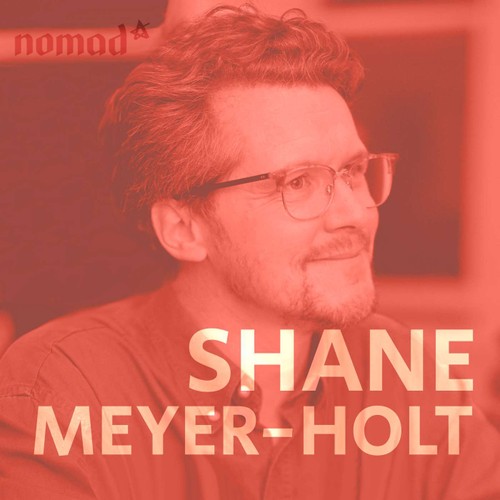
 Nomad Podcast
Nomad Podcast Shane Meyer-Holt - Unlearning Capitalism: Learning to Care, and Be Cared For (N342)
10 snips
Apr 10, 2025 Shane Meyer-Holt, a writer and speaker, delves into the profound effects of capitalism on our sense of self and relationships. He critiques how neoliberal values can overshadow our inherent need for care and belonging, particularly highlighting the emotional toll on caregivers, especially women. He advocates for community support and interdependence as alternatives to exploitative capitalist systems. The discussion also touches on the nuances of faith within capitalist frameworks, urging a shift towards inclusivity and genuine connection in spiritual communities.
AI Snips
Chapters
Books
Transcript
Episode notes
Shane's Early Faith and Anxiety
- Shane Meyer-Holt's faith journey began in New Zealand, shifting between Brethren, Baptist, and Pentecostal churches.
- He was an earnest child, yearning for connection with God, but also experiencing deep anxiety about eternal damnation.
Unraveling and Injustice
- As a young adult, Shane was a successful youth pastor but struggled with internal anxieties and an unhealthy marriage.
- Working with underprivileged youth exposed him to systemic injustices and challenged his faith's narrative about sin.
Dissertation Inspiration
- Shane's dissertation explored care, suffering, and the church under neoliberalism, driven by a need to understand societal structures.
- Personal experiences, including leaving his church and moving to Melbourne, fueled his interest in these topics.



